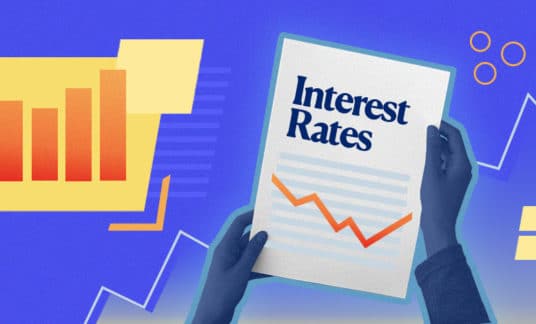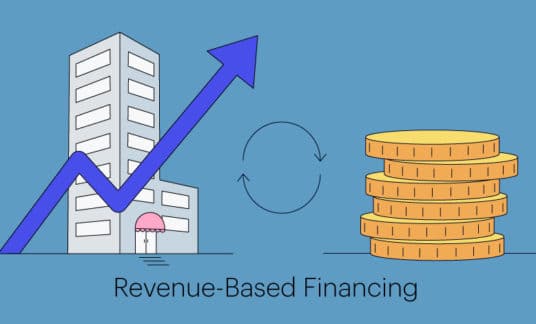If you’re an aspiring entrepreneur and you want to avoid taking out a loan, your financial adviser will likely discourage you from using retirement assets to buy or build a small business.
However, using funds in 401(k) and other retirement accounts may be the move to take your small business to the next level.
4 Options for Using a 401(k) to Start a Business
If you want to use a 401(k) to start a business, there are 4 main options available:
- A Rollover for Business Startups (ROBS)
- A conventional 401(k) loan
- A retirement account distribution
- A Rollover as a Short-Term Loan
Each of these options offers distinct advantages and disadvantages that make them appropriate for some small business owners and inappropriate for others. You need to know the differences before deciding whether using your 401(k) for business funding is the right move.
1. What Is a ROBS 401(k)?
A Rollover for Business Startups is a process that small business owners can use to fund the purchase or growth of a small business. The way it works is that the small business owners create a corporation (it has to be a C corp), and they create a 401(k) for that corporation. Then, the business owners rollover assets they have in other 401(k), 403(b), 457(b) or profit-sharing plans into the 401(k) for their new business.
Once the small business owners complete their rollovers, they can then invest the assets in their new 401(k) directly in their new company. The funds can then be used to start, grow or buy a business.
The reason a ROBS 401(k) is considered a great 401(k) financing option is that it’s the only option that doesn’t accrue taxes, penalties or additional interest charges. The ROBS method allows you to use either your 401(k) or your individual retirement account (IRA) to fund an acquisition or a startup without any instantaneous tax burden or penalties.
How a ROBS 401(k) Works
With a ROBS 401(k), assets from qualified retirement accounts, such as a 401(k) or a typical IRA, are rolled over and invested in a new business or franchise, or used to buy or put money into an existing business with the help of an attorney or a ROBS provider.
Rolling over the funds preserves the tax-deferred status of the account without being subject to early withdrawal penalties like it would be for a 401(k) and IRA.
Under most circumstances, taking money out of a retirement account before age 59 1/2 triggers the account holder to pay income tax for the money withdrawn, plus a 10% penalty. The difference with a ROBS, however, is that the funds roll over directly in your business as an investment. Therefore, the funds aren’t counted as a withdrawal from your retirement account or a loan against it.
Even with this investment stipulation, borrowing against a 401(k) to finance a business still requires repayment with interest, as well as employer approval in many cases.
Who a ROBS Is Right for
If you have more than $50,000 in a 401(k) or traditional IRA and plan to work in the business full-time, a ROBS is the best option for 401(k) business financing.
In addition to the asset figure required, for a ROBS to be a financing option, you’ll need to meet the following qualifications:
- Plan to Be an Active Investor – To qualify for a ROBS, you must be entirely devoted to the business you’re investing in. ROBS can’t be used for side investments or by partners who don’t intend to be active in the business.
- Have Significant Retirement Assets – One of the advantages of a ROBS is that you can finance your business without taking out a loan or accumulating business debt. While it doesn’t carry any early withdrawal fees, it’s recommended that your accounts have more than enough funds to support both the business investment and retirement needs.
- Have a Good ROBS Provider – Using an experienced ROBS partner that has set up many rollovers can help to expedite and simplify the process. It should be noted that ROBS administrators can charge $5,000 or more, on average, with monthly administration fees of more than $125. While this monthly fee covers any assistance with tax filing for your ROBS, it’s still important to consider.
ROBS can be used to fund a small business even if you don’t have enough money in retirement assets to fund your entire ventures. If you have assets in retirement accounts but need additional financing to fund your small business, you can set up a ROBS and use your ROBS 401(k) for a down payment on an SBA loan.
How to Set Up a ROBS 401(k)
Rollovers for Business Startups are specialized products that usually involve working with a specialist. The process typically involves several fees. However, if you have savings in a retirement account and want to use your 401(k) to buy a business or to start one, a ROBS can help you get the funding you need.
The steps to set up a ROBS 401(k) are:
- Set up your new business as a C corporation
- Once the C corp is incorporated, establish a new 401(k) plan for the company
- Roll existing retirement accounts into the new 401(k) plan
- Once rolled over, funds in the new 401(k) account can be invested in the business by purchasing stock in the new C corp
In addition to these steps, using a Rollover for Business Startups also requires ongoing administration like nondiscrimination testing and filing a Form 5500 with the IRS that shows the total number of assets and participants in the plan. There are also ongoing rules for things such as employee eligibility, adding new participants to your plan and working in your business if you use a ROBS.
For these reasons, it’s usually a good idea to work with a ROBS provider to set up a plan for your small business.

2. Using a 401(k) Loan
A ROBS 401(k) may be a good option if you need a significant amount of funding to start your business. However, if you’re planning to keep your current job or won’t be an active member of the business, using a conventional 401(k) to buy a business is the better entrepreneurial (or investment) option.
How a 401(k) Loan Works
If you have a 401(k) account with your current employer, the IRS allows you to borrow up to 50% of your vested balance or $50,000, whichever is less. After you borrow from your 401(k), you then pay that loan back over time, replacing the funds in your account (with interest). But, in the meantime, you can use the money borrowed from your 401(k) to start or build a business.
A 401(k) loan can seem like a great option, but some rules and restrictions may make it a less viable option:
- You have to be currently employed by the 401(k) plan sponsor
- You have to stay with your employer for the duration of the loan
- Your employer has to allow plan participants to borrow from their 401(k)s
- You can’t be a full-time employee of your new business while your loan is outstanding
- You have to be starting, buying or building a passive income business
Who Should Consider a 401(k) Loan
A conventional 401(k) loan may be a good option if:
- You need less than $50,000 in funding
- You’re staying with your employer
- You won’t be a full-time employee of your startup
- This is a passive income business
- You can repay within 60 days

3. Regarding Retirement Account Distributions
Of all the forms of 401(k) business financing, cashing out a 401(k) to start a business is perhaps the least attractive option. When you choose this option, essentially, what you do is withdraw money from your retirement account to use for your business.
When you withdraw money from your retirement account, you are required to pay taxes (unless you’re withdrawing cash from an after-tax account such as a Roth). In addition, you’ll also have to pay early withdrawal penalties (if you’re under the age of 59½ and don’t qualify for a hardship distribution) equal to 10% of your distribution.
Because of these taxes and penalties, chasing out a 401(k) to buy a business or start one typically isn’t advisable. Starting a business is extremely risky, and the failure rate is high. People should be careful not to lose their retirement savings in risky ventures.
How Cashing Out a 401(k) Works
After you’ve concluded that you’d like to cash out your 401(k) to fund a business, the first step you will need to take is to request paperwork from your retirement account company. Depending on the provider, this can be accomplished over the phone or online. Likely, the company that established your retirement account will also need to approve the request.
Requesting a distribution from your retirement account — especially if you’re under 59½ — can also be time-consuming, so you may not receive funds for several weeks. Some companies or plans further restrict disbursements, which can cause the process to take even longer.
If this is the route you’re aiming to take, it’s important to plan ahead of time to verify when you’ll have the funds and understand how your account provider disburses funds. Once the money has hit your account, it will have to be declared as taxable income, minus any fees.
Who Should Consider Cashing Out
Typically, withdrawing funds from your 401(k) or IRA to start or fund a business is used as a last resort. Financial planners advise that while it’s certainly an option to fund a business, it’s almost always the most expensive option. Also, early withdrawal means your funds could lose potential earnings because of their tax-advantaged retirement account status.
Two exceptions to the rule do apply:
- Withdrawing funds from a retirement account is a viable option if you’ve held a Roth IRA for more than 5 years and have made significant contributions
- You’re already 59½
4. Using a Rollover as a Short-Term Loan
If you have retirement assets from a previous employer, there’s one other way to use them for short-term business financing, but it’s risky.
When you do an IRA or 401(k) Rollover, the IRS gives you 60 days to complete your rollover. This means that if you have assets in a retirement plan that are eligible to roll over, you can start your rollover and use the money to fund your business for up to 60 days.
However, if you take this step, you must replace the funds and complete your rollover within 60 days. If you don’t, the funds will be treated as a distribution. You’ll have to pay taxes on the amount you failed to roll over as well as a 10% early withdrawal penalty if you’re under 59½.
Using a 401(k) to Start a Business: The Verdict
There are several ways that small business owners can use 401(k) financing to start or buy a business. However, it isn’t always ideal. If you aren’t careful, you may end up getting hit with a large tax bill for taking money from your retirement account. You may also face some stiff penalties if you’re under 59½.
However, if you plan to invest your 401(k) in a business to call your own after retirement, it could be a wise investment.
Before withdrawing anything from a retirement account, we recommend that you exhaust every business financing option available to your organization. We also suggest that you do what you can to improve your business credit.
If, after exploring these avenues, you’re left without the funds necessary to establish your business, you’re more than able to use your 401(k). Ultimately, this is your decision, regardless of what financial experts say. If you believe building your dream through 401(k) small business financing is the best option for you, more power to you.










